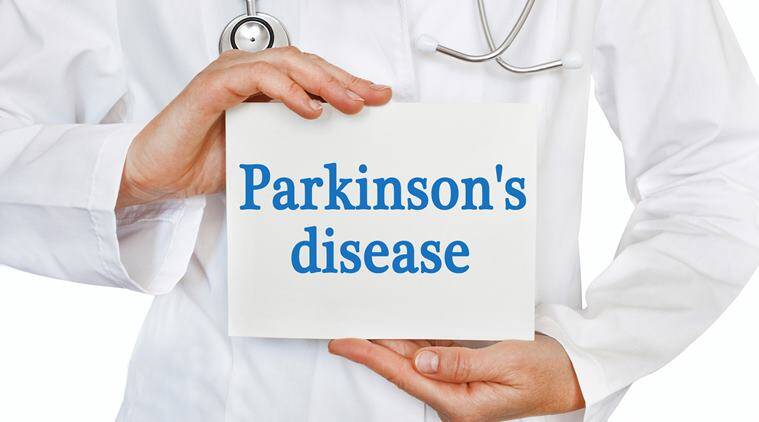Magnesium and Parkinson’s disease
WHAT IS PARKINSON’S DISEASE?
Parkinson’s disease or (PD) is a condition whereby the neurons in a region of the brain which controls movement disintegrate. This disintegration prevents the brain chemical signals or neurotransmitters (Dopamine) from functioning properly (Ciucci, 2010). Parkinson’s disease is a slow progressive condition with no known causes (Stanley- Hermanns, 2010).
Dopamine is one of many chemical messengers in the brain that permit a sensible communication between our nerve cells. Without this vital neuron messenger, the message will not be delivered to our muscles and there will be no movement. In the human brain there is a part called the Substantia Nigra or black substance. It is located near the centre of the brain with a cluster of dark color cells which produces dopamine.
In Parkinson’s disease, these cells are damaged and either produce no dopamine or too little of it to serve as neurotransmitters. Dopamine controls arousal levels in many parts of the brain, and it is vital for the state of our emotions and moods.
When dopamine level is severely depleted, as in Parkinson’s disease, people may even find it impossible to move forward voluntarily. Dopamine as an important neuron or messenger also deals with pleasure and pain. It is a happy messenger. This chemical releases hormones that allow us to enjoy our lives. If there is too much stress, it interferes with the functions of dopamine; we may become unmotivated or even lose our zest for living. Dopamine is in the brain as well as in the nervous system. Its job is to control our movements, to stimulate the heart, circulation and the metabolic rate. It also controls coordination and brain activities as well as regulates information to different parts of the brain. Dopamine releases chemicals such as endorphin to make us feel pleasure.
If the distribution of dopamine is disrupted in the brain, it affects our emotions; we will not be able to feel or show any emotion. In Parkinson’s disease, the nerve cells that create dopamine are destroyed. Once 80 percent of cells that manufacture dopamine are dead, the affected person suffers from the symptoms of the disease.
MAGNESIUM AND PARKINSON’S DISEASE
Modern medicine in this age of knowledge explosion has ignored the power of natural healing. Unknowingly or otherwise, doctors disintegrate our cells by pumping toxins and drugs into our bodies. But the bitter truth is loud and clear. Our cells are mutilated because of toxins, and to remove that big elephant (toxin), we need to rejuvenate our cells through a natural remedy. One of those natural remedies is magnesium chloride. Magnesium chloride and drugs are entirely opposite in their effects on the human body. While drugs mutilate our cells, magnesium chloride rejuvenates them. In view of that, the simple logic is “no toxins, no disease”. The simple fact about Parkinson’s disease is that there is an imbalance between sympathetic and parasympathetic nerves in our nervous system.
“The parasympathetic system specifically is responsible for stimulation of activities that occur when the body is at rest, including salivation, lacrimation, urination, digestion and defecation. Its action is described as being complementary to that of one of the other main branches of the ANS, the sympathetic nervous system, which is responsible for stimulating activities associated with the fight-or-flight response. Because of this relationship, the action of the parasympathetic nervous system is often described as “rest and digest”. http://en.wikipedia.org/ wiki/Parasympathetic nervous system
Magnesium chloride, calcium, potassium and sodium maintain the balance between these two systems. To be more precise, magnesium chloride does the actual balance between the two systems and regulates other minerals such as calcium to protect the cells from calcification. Proper levels of magnesium can help regulate the imbalance between the sympathetic and parasympathetic systems in Parkinson’s. Magnesium balances calcium. This means magnesium helps to shut down the messages that calcium delivers, after calcium has completed its work. http://restoreunity.org/magnesium_parkinsons.htm. Research conducted in Department of Neuropathology, Tokyo Metropolitan Institute for Neuroscience in Tokyo, Japan, to examine the effects of magnesium in a rat Parkinson disease model indicated that magnesium protects dopaminergic neurons in the substantia nigra from degeneration. This study documented the significant effects of magnesium in preventing neurite and neuron pathology as well as amelioration of neurite pathology in a PD model (Yasui, 1992).
Studies suggest that magnesium protects brain cells from the devastating effects of aluminium, beryllium, cadmium, lead, mercury and nickel. The studies further indicated that a low level of magnesium in the brain contributes to the deposition of heavy metals in the brain, causing Parkinson’s disease. This may be due to the fact that heavy metals compete with magnesium in the brain. The lower the amount of magnesium in the brain, the higher is the amount of metals deposited (Carolyn Dean, 2007). Aluminium is one of the factors associated with the degeneration of central nervous system. Apart from that, pesticides are also a contributory factor in Parkinson’s disease.
These studies indicate that severe neurological syndromes can result from extremely low levels of magnesium in the brain (Yasui, 1992; Nelson, 2000). Magnesium provides real relief to those who are suffering from the debilitating effects of Parkinson’s disease. Therefore, magnesium therapy must be the first choice to treat the disease, not the last. The effectiveness of the treatment depends on the severity and duration of the disease. If the brain cells which produce dopamine are completely dead, a full recovery will be difficult. However, magnesium chloride still offers some relief to the patient.
